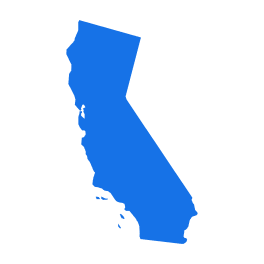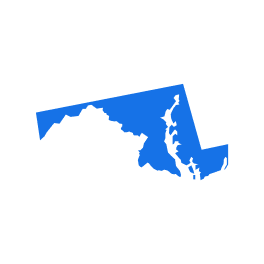Since 2021, several states across the US have passed Extended Producer Responsibility (EPR) packaging laws that are set to take shape in 2025. Companies that make or sell products will be subject to reporting requirements and fees, with penalties up to $50,000 per day for noncompliance depending on jurisdiction.
To help businesses understand and prepare for EPR packaging compliance, this blog will cover:
What is Extended Producer Responsibility?
Extended Producer Responsibility (EPR) is an environmental policy approach that holds producers accountable for the entire lifecycle of their products. Producers, as defined by most EPR laws, typically include manufacturers, brand owners or licensees, and importers or distributors - with exceptions for small businesses, governments, charities, and retailers.
While EPR can be administered on almost any type of product, the focus has been growing on packaging and packaging waste. In 2018 (the most recent year of data collected), the US alone generated 82.2 million tons of packaging waste - 28.1% of total waste generated.
EPR packaging laws shift responsibility away from consumers and municipalities, who have historically shouldered the financial and operational burden of packaging waste, to the companies manufacturing or selling the products themselves. They also provide incentives for producers to develop more sustainable methods and always consider the environmental impact of packaging.
Where are EPR Packaging Laws Relevant in the US?
While EPR was first introduced in the European Union, it has since spread to countries around the world, including the United States. There is no US federal law in effect; instead legislation is introduced and passed at the state level.
- States with current EPR packaging laws include: California, Colorado, Maine (the first state to enact EPR legislation in 2021), Minnesota, Oregon, and Washington
- States with pending EPR packaging laws include: Hawaii, Illinois, Massachusetts, Michigan, New Hampshire, New York, New Jersey, Rhode Island, Tennessee
Businesses that meet the requirements for compliance to EPR packaging laws across multiple states must report and comply with each one independently.
What Must Companies do?
Businesses considered producers that are subject to EPR packaging laws bear several legal obligations, varying by state, including:
- Fees - paid by the producers based on both the amount of material and its recyclability
- Recyclability & source reduction - specific targets that incentivize producers to shift packaging methods to be more sustainable (e.g. in California, 100% of packaging and plastic food ware must qualify as recyclable or compostable by 2032)
- Reporting - data that must be collected including material type and weight, the form of packaging supply, and other related information
In order to help companies adhere to their legal obligations, responsibility is centralized to an entity known as a Producer Responsibility Organization (PRO). The PRO collects funds on behalf of the producer and then distributes those funds to cover the end-of-life management of the producers' products.
The Circular Action Alliance (CAA) has been approved as the PRO in California, Colorado, Maryland, Minnesota, and Oregon. It intends to also participate in the RFP process to serve as Maine’s Stewardship Organization (the term used in place of PRO in Maine).
Key Deadlines and Info
As mentioned above, companies that sell in or into California, Colorado, Maine, Maryland, Minnesota, Oregon, and Washington must meet numerous requirements with varying timelines. Staying on top of deadlines and compliance details is crucial for businesses. See key dates and requirements below that companies need to prioritize, from registration timelines to reporting obligations. Keeping these details in check will help ensure smooth compliance and avoid unnecessary setbacks.

California
- Signed into law (Senate Bill 54) on June 30, 2022
- Goal:
- By 2032, 100% of covered packaging must be recyclable or compostable, and plastic packaging must be reduced by 25% by weight
- Key Deadlines:
- Preliminary reporting due: November 15, 2025
- The PRO submits a plan: Mid-year 2026
- Program begins: On or before January 1, 2027
- PRO remits initial California plastic pollution mitigation fund fees: March 1, 2027
- PRO remits first administrative fees to CalRecycle: July 1, 2027

Colorado
- Signed into law (House Bill 22-1355) on June 3, 2022
- Goal:
- Reduce waste, improve recycling rates, and create a circular economy for materials by setting targets for post-consumer recycled content, collection, and recycling rates
- Key Deadlines:
- Register with the PRO: October 1, 2024
- Data reporting submitted to the PRO: July 31, 2025
- Producers remit dues to the PRO: January 1, 2026
- The full rollout of the program is anticipated in 2026

Maine
- Signed into law (LD-1541) on July 12, 2021
- Goal:
- Reduce the volume and toxicity and increase the recyclability of packaging material
- Key Deadlines:
- Register with and report data to the Stewardship Organization (SO): May 2026
- Producers remit dues to the SO: September 2026

Maryland
- Signed into law (Senate Bill 901) on April 7, 2025
- Goal:
- Reduce waste by at least 25% by 2035 and increase reuse, recycling, and composting rates
- Key Deadlines:
- Register with the PRO: July 1, 2026
- Producer responsibility plans due: April 1, 2027
- Producers cover at least 50% of program costs: July 1, 2028
- Producers cover at least 75% of program costs: July 1, 2029
- Producers cover at least 90% of program costs: July 1, 2030
- Register with the PRO: July 1, 2026

Minnesota
- Signed into law (HF-3911) on May 22, 2024
- Goal:
- All packaging, food packaging and paper products are either refillable, reusable, recyclable or compostable by 2032
- Key Deadlines:
- Register with the PRO: July 1, 2025
- Initial needs assessment due: December 31, 2026
- Producers cover at least 50% of program costs: February 1, 2029
- Producers cover at least 75% of program costs: February 1, 2030
- Producers cover at least 90% of program costs: February 1, 2031

Oregon
- Signed into law (Recycling Modernization Act) on August 6, 2021
- Goal:
- Create a statewide recycling program for most packaging and food service ware by improving infrastructure, expanding collection, and providing education
- Key Deadlines:
- Register with the PRO: March 31, 2025
- Program plan begins with initial fees invoiced: July 1, 2025

Washington
- Signed into law (Senate Bill 5284) on May 17, 2025
- Goal:
- Boost recycling rates, reduce waste, and improve the state's recycling infrastructure
- Key Deadlines:
- Register with the PRO: July 1, 2026
- Full needs assessment: December 31, 2027
- PRO submits plan: October 1, 2028
- Producers cover at least 50% of program costs: February 15, 2030
- Producers cover at least 75% of program costs: February 15, 2031
- Producers cover at least 90% of program costs: February 15, 2032
How Clearyst Streamlines EPR Compliance
EPR legislation has proven to increase recycling and collection rates, reduce public spending on waste management, and improve the design of products for environmental impact. With a growing focus on supporting the circular economy, EPR laws - particularly in packaging - are only expected to spread throughout the United States.
For businesses that manufacturer or sell products in the US, these varying and changing state-level EPR requirements present complex challenges, particularly for those operating across state lines.
Clearyst’s suite of products and services help producers navigate the process, both ensuring compliance and promoting sustainability. Solutions include:
- Data collection - assembling and analyzing data from across the supply chain and reporting in compliance with requirements
- Legislative tracking & reporting - staying up to date on the latest EPR law and regulatory changes
- EPR program management - working with the CAA to adhere to EPR laws in each state and avoid penalties for non compliance of up to $50k per day
- Producer software solutions - implementing systems to align stakeholders, manage EPR projects, and measure performance
- Packaging redesign - developing EPR-compliant packaging solutions
We've already helped a number of clients across the globe collect, report, and remit fees to ensure compliance with the latest EPR laws. Learn more about our work and see how Clearyst can accelerate and simplify EPR packaging compliance for your organization.

